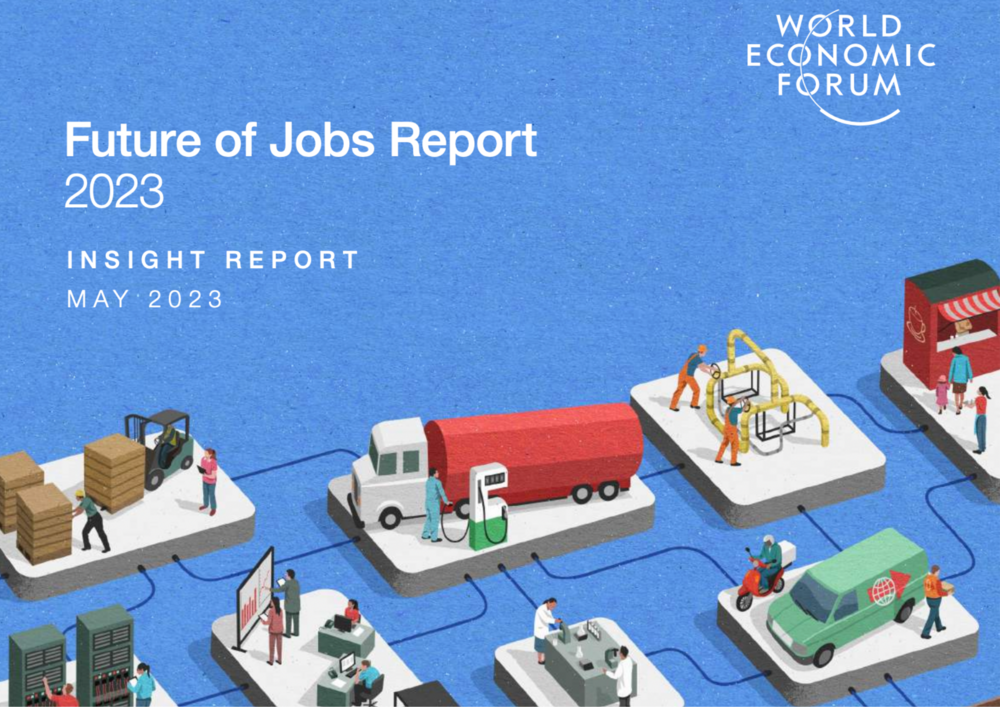Since 2016, The World Economic Forum has released a bi-annual 'Future of Jobs Report'. Designed to predict the changing landscape of the jobs market and the skills we'll need to navigate it, these reports offer valuable insight into what our children will need to succeed...
Back in May, The World Economic Forum (WEF) released
their latest edition of the Future of Jobs Report.It contextualises the current jobs market within a broader narrative of workplace automation, the recent rapid rise of AI and a 'Fourth Industrial Revolution' This refers to the next phase in the digitalisation of the manufacturing sector, characterised by disruptive technological innovation.
The report goes on to detail all the ways that the world of work is set to change in the next 5 years and, crucially, how we can prepare for it.
Here's the headlines you need to know...
1) Employers estimate that 44% of workers’ skills will be disrupted in the next five years 📈
As technology continues to transform the modern workplace, workers will need to rapidly adapt their skillset to suit a changing world of work. As knowledge-based and technical jobs become increasingly automated, WEF recognises that it is now soft skills that set us apart from machines. It is these skills that employees will need to develop in order to thrive in a future jobs market.
2) Analytical thinking and creative thinking remain the most important skills for workers in 2023 💭
The report identifies analytical and creative thinking as the two most in-demand of these soft skills. Also featured in the top 10 are resilience, flexibility, motivation, curiosity, attention to detail, empathy, active listening and leadership. Given the recent pace of technological innovation, it is hardly surprising that these distinctly 'human' skills rank so highly.
3) Six in 10 workers will require training before 2027, but only half of workers are seen to have access to adequate training opportunities today 💬
Given the predicted disruption to workplace skills, it's estimated that over half of workers will need retraining. Worryingly, not everyone has access to these crucial initiatives. If something isn't done to meet this rapidly increasing demand for soft skills, workers will become progressively unemployable and the global workplace will become more and more unproductive.
4) The skills that companies report to be increasing in importance the fastest are not always reflected in corporate upskilling strategies 🚀
Whilst many workers don't have access to training at all, those that do aren't necessarily being trained in the right way. A lot of corporate reskilling initiatives are focussed on AI and big data. Whilst these are undeniably important in the current age of AI, they should not be prioritised at the expense of the crucial soft skills identified above.
But it's not all bad news...
Whilst the above findings paint a rather bleak picture of the future jobs market, it is reports such as this that will propel change, highlight the urgent need for reform and champion the crucial work of organisations like Debate Mate!
Using our signature debate-led methodology, our courses are a masterclass in future skills from communication, critical and creative thinking to empathy, resilience and core confidence! No one is setting up the next generation for success quite like Debate Mate.
🚨 Want to supercharge your child with these valuable employability skills? Sign them up to a free taster session
here and check out our upcoming Autumn Term courses
here!
